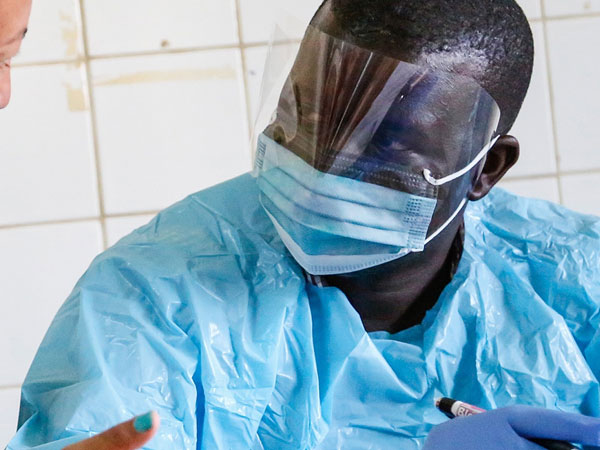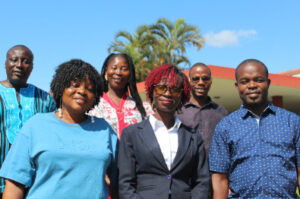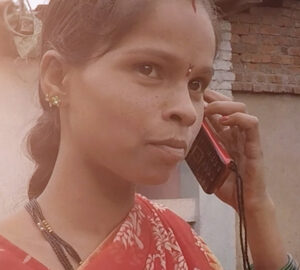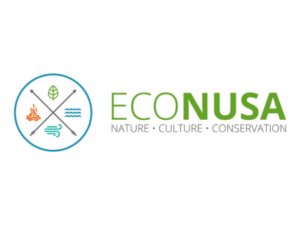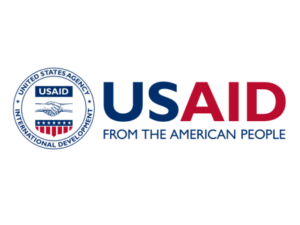Global Health Corps seeks to increase global health equity by providing leadership opportunities for young professionals from diverse backgrounds to work on the front lines and respond to real-time demands from the field.
Heather Anderson of Global Health Corps spoke with Jessica Kantor on January 8, 2024. Click here to read the full conversation with insights highlighted.
Jessica Kantor: Can you introduce yourself, your organization, and the problem that you are working to address, and how you’re working to address it?
Heather Anderson: My name is Heather Anderson. I’m the Chief Executive Officer at Global Health Corps (GHC), and the problem that we are looking to serve is really working to advance health equity around the world.
Jessica Kantor: That’s a really big, broad problem. How are you working to address it? If you want, you can answer with an overall view and then go a little bit deeper into all the different ways that you’re touching.
Heather Anderson: Absolutely. GHC was founded in 2009, really based on the belief that leadership is one of the greatest levers for change, and that in the health sector, if we want to really harness the potential of all the medical advances, technology, and other health interventions, we need leaders who think and act differently, and that it can’t just be status quo. I think additionally, for us at Global Health Corps, the recognition that a lot of training investment in those working in health has really been on the clinical and technical side of things, and that we absolutely need that, but it needs to be coupled with the really amazing and important and critical leadership and management skills. I think it’s safe to say that during the pandemic, everyone’s job description was thrown out the window. It was those who were adaptive, collaborative, who knew how to work across the boundaries of lines of difference that were the ones who really thrived, and who really could come up with the creative, necessary, and lifesaving solutions needed during a really difficult time of a health crisis. That’s really how we were founded, to invest and recruit and train, and build a network of health equity leaders who really were wanting to solve complex challenges, and very innovative in different ways.
I really came to Global Health Corps in 2012 because of this mission. Just sharing a little bit in terms of how my background connects, I had actually started out in the private sector. I was a management consultant. Even in my early 20s, I really had the privilege and opportunity to have a lot of leadership and management trainings and skills and investment by my employer. Then later in my 20s, I decided to make a shift. I was really passionate about gender equity, and felt there were still persistent inequities in the world, particularly when you looked at health disparities, particularly through the lens of women’s health. I made a pivot, and had the opportunity for the last 20 years to be working in a range of different global health issues. No matter where I went or what organization, amazing organizations, small organizations, large ones, very rarely did I see any leadership or management opportunities. Even in graduate school, when I went to get my master’s in public health, you didn’t see those leadership skills opportunities, let alone whether you were early in your career, and only sometimes as people were continuing on their career. That’s what really brought me to this organization, because I saw so many talented health professionals, who hadn’t really been invested in terms of “What is it to work in problem-solving? What is human-centered design? What is it to be adaptive? How do you navigate difficult conversations?”
I was really inspired by Barbara Bush and the other five co-founders who started Global Health Corps. They were in their 20s themselves, and really had a solution to what is it to solve the challenges that were still persistent. We made a lot of advances in health, but there were still persistent health equities. It was this vision to build stronger health systems by investing in the next generation of health leaders. The way that we’ve done that over the course of the organization is to launch a fellowship program. These are for early career, young people that are passionate and care about health that are under the age of 30, and may not be coming from traditional health backgrounds.
What we’re doing is helping to seed the health sector with talented young leaders, to fill gaps in supply chain management or technology, or communications or program design or informatics, skills that I think many people don’t often realize are a critical part of a functioning health system. I think so often, people just think about doctors and nurses, which are absolutely necessary, but really rounding out a functioning health system requires so many more other skills and experiences. We’ve deeply partnered with Ministries of Health in Eastern and Southern Africa. We also work in the US. We work with nonprofits, we worked with the private sector to really understand, what are the capacity needs that young people really could help support, fill? Then we go and find those folks, and they come into a fellowship program for a year.
All of our fellows are working together with another fellow, so they all work in pairs in Eastern and Southern Africa as a way to build a broader network, to learn how to work with someone from a different background than yourself. They are working in these roles for a year, and then getting intensive leadership training throughout that. With really not only the opportunity to invest in that year of improving the work that they’re doing, and supporting the capacity gaps, but really, to build what the rest of their career can hopefully really look like, and benefit by being part of this network.
Since 2009, we’ve had 1200-plus folks go through this intensive leadership program, and it’s been really exciting to see. I mean, my own personal real sort of excitement and satisfaction, and I feel really proud at times of where the majority of our alumni are now, working in senior-level positions across the health sector. We have the majority of them collaboratively, professionally working with each other, and we’re also measuring how they’re influencing the field of health, whether they’re speaking at conferences or doing policy papers.
For us, what we’re trying to achieve is how are you working to really move the needle in terms of more women who are working in health, and getting to be in senior-level positions? How do you invest in those that are most proximate to the issues and the challenges that they’re facing in their countries? How do you really build this tight-knit network who you can rely on and engage with? Because we know that health issues are not going to be solved, or problems are not going to be solved overnight. So what is it to invest in a network who you can turn to, regardless of when and where, but throughout your career as you’re making your own way through?
Jessica Kantor: I imagine some of your main metrics for tracking would be how many people come through your training and your community building sessions, and then how many move into senior positions afterwards. But are you tracking anything in terms of the health equity in the communities themselves that they’re serving?
Heather Anderson: It’s a great question, and we continue to work on what ecosystem metrics look like. We’ve intentionally gone deep in a handful of countries for our first set of years so that we could really think about “What does the tipping point look like? What does it look like to really meet the needs that the health systems in the countries are reaching?” I think it’s also safe to say that to attribute one person to solving a specific health issue of an organization is a lot to attribute to a single individual. That is why we think about it in terms of our specific impact, in terms of where they’re going and how they’re really collaborating with each other. We know that it’s not going to just be the individual that’s going to move the needle.
But what does it look like, for example, in Rwanda, where we have close to 200 fellows and alumni, who are working at the Ministries of Health, who are working at the banks, who are working at the foundations and the community based organizations (CBO), and the larger INGOs who are still regularly coming together, who are, with the support and engagement of Global Health Corps, saying, “Yes, not only what are we doing in our own roles, but we still see persistent cracks in the health system”?
We support them in forming a coalition around reproductive health policy, because that’s what they want to be changing in their country. Or they don’t feel there’s enough mental health services. What kind of technical support and resources do they need to be able to do that? Those are some of the ways, both qualitatively and quantitatively, that we’re really looking to address it. Part of it, ultimately, is looking at both through the sustainable development goals (SDG), tracking what’s happening in the countries and how is that going to be changing, along with the numbers and the scope and the scale, in terms of the work of what our fellows and alumni are doing as well.
Jessica Kantor: Can you share an example of something that illustrates the impact of your work?
Heather Anderson: I think one example could be of our alum, Temie Giwa-Tubosun, who was a fellow in 2011. After she went through the fellowship program, she subsequently gave birth to her son on Valentine’s Day, but she suffered from severe bleeding. Both she and the baby required intensive care, coming out of this experience. She decided that she had, in that experience, access to lifesaving blood. She had access to great health services, and because of that, she and her baby were safe and healthy and were able to be okay. But she knew that in her home country of Nigeria, that might not have been the case. She decided that from the experiences that she had professionally, being part of the GHC leadership experience and the network to be entrepreneurial, to think different, to change the status quo, that she wanted to really figure out how she could take this passion and commitment, and this newfound real focus on her life, and be able to do something about it.
She ended up launching her own social enterprise called LifeBank in Nigeria, which helps get blood and other essential medical products to the most needed hospitals and clinics in Nigeria. Because of the work on supply chain and logistics, and how to get blood and products to those most in need, she’d been able to really help thousands of mothers be able to deliver their baby safely. It’s been having a profound impact, where she’s not only scaled across Nigeria, but into other countries. Even during the pandemic, she really expanded her transport, and the work they were doing to be able to get PPE and COVID supplies, like the tests and all of the needs during that time, to be able to really reach more folks, particularly across Nigeria. Yes, she had these home kits which brought the PCR testings to the doorsteps of folks.
When you ask her in the interview in terms of, “How were you able to do that?” A lot of the story that she talks about is leaning on the GHC network, by being able to tap into the expertise of the experiences and the skills that everyone else had. Being an entrepreneur, you’re expected to understand finance and operations, and rolling out your program and understanding what scale looks like. And hiring, and being able to have a community of people who were very centered on health equity, that came from different backgrounds, particularly nonclinical backgrounds, really helped her launch that. She’s been amazing. She’s been recognized by The Economist, and she’s won a lot of different awards by Merck and others. It’s just really been amazing to see her scale the impact of her organization that she launched.
Jessica Kantor: The different touchpoints for her would be that she originally went through the fellowship with you all, and then once she had this idea, she was able to lean on the resources. Would it be that she was then able to tap into the knowledge that other people could have? Or do you guys have a resource toolkit where you can actually help provide, if someone needs consultation on a certain topic, you’ll put them in connection with them? Or would she need to go to the people that she already knows and say, “Hey, do you know how to do this?”
Heather Anderson: That’s a great question. I’d say it’s a few of those things. I think first of all, number one, the leadership training that she went through, just in terms of what it is through our lens of leadership, which we really define as authentic and collective leadership, and then systems and design thinking. I think even that orientation for her provided an ability to think about, “What is it to even launch something?”
We found qualitatively from our research that, particularly for women, going through the fellowship really increases their confidence and ability to think, even as a young person, that you can make a difference. I think part of it was that initial year experience, being surrounded by peers who come from so many different backgrounds. Then realizing, “Okay, I’ve had this experience. I want to do something. I’ve gained some skills through all my professional experiences today, including Global Health Corps, and I have this built-in network that as I’m trying to figure out how to launch it, I can tap back into.” Part of that includes an advisor program that does include a senior-level variety of health experts and others. The GHC network runs really deep. Especially throughout our program, all of our fellows were paired with an advisor, and so she would’ve had one of those.
Then particularly, even as we continue to build out as an organization, there is alumni programming. She was early. She was only a couple years in, so she would not have necessarily tapped into it, but we now have things that we call program areas, called impact trajectories, that really help those who want to be entrepreneurs, or those who are real executives and put together peer groups. For her, she was really the early days of helping us figure out “How do you take this network, and what are the skills and continued experiences and networks that you need as you continue advancing your career?”
Jessica Kantor: Nice. Did you have another example that you wanted to share?
Heather Anderson: I was going to share just one that is more recent, really through now 15 years of investing in our communities across Malawi. That’s another country where we’ve been since the beginning, and also have close to 200 fellows and alumni that have gone through that program. I would say about a year ago, as the alumni were identifying what was the health issue area that they collectively wanted to work on, it was really around sexual and gender-based violence. They felt that was continuing to be a pervasive issue that was happening in different parts of their communities, and really wanted to be able to address it. They come from a tech background. There’s economists or programmers or communicators.
One of the ways that they thought that would be really helpful would be bringing together communities from all different sectors, because they all sit in different places throughout the organizations. They thought about “What are ways to really do something that presents and creates different ways of thinking about, how do you address gender-based violence?” They came up with the idea of putting together a hackathon, where you could have everyone from, bringing those from the police department, from those working at small CBOs, to the Ministry of Gender, to multilateral organizations, to partners and health, together, really in a room, in a way that they haven’t been. As an organization, while this isn’t necessarily the core issue that we had worked on as an organization, having alumni that sit in all different spaces come together and to be able to coordinate this kind of meeting, where you have 70 participants and 45 organizations come together.
Ultimately, the hackathon, there’s prize money from a partnership that we have with D-Prize, which is around really scaling proven health interventions. There were teams that came up with a variety of different sexual and gender-based violence ideas, to be able to get those really vetted. Then they’re able to win prize money, and be able to launch them in our communities. It’s this lens towards cross-disciplinary, and those that were very rooted in the communities, and serving those that were closest to the challenges. That’s a way that we think about what it is to seed the field with these health equity leaders. What is it to not only bring them through a year-long fellowship experience, but then also, what is it to continue to invest in them and provide them the resources, the support for them to continue on, impacting communities that they live in.
Jessica Kantor: Thank you for sharing that example. What are some of the key lessons that you guys have learned? And this could be a problem that you solved specifically, or a problem that you haven’t been able to overcome yet?
Heather Anderson: I think some of the things that come to mind, one is thinking about the need for continuing iteration and innovation that’s really baked into our DNA, fortunately. I’d say that because health issues continue to change and evolve. Whether it’s with the rise of AI in technology, or whether we’re going to deal with a global pandemic, how human beings are showing up and functioning and trying to change systems is really important, to figure out how we can continue to innovate and adapt based on what is needed. From our founding in 2009 to where we are now, the values and the ethos of what is it in terms of advancing health equity and thinking about that through the intersectional lenses, and thinking about what is it to change structures and that sort of thing, that has not changed. How it is to invest in yourself and the collective.
One of, I’d say, the constant present challenges is how do you do that most effectively? How do you do that cost-efficiently? How do you do that with different partners? For us, it’s looked like everything from, during the pandemic when we had a co-fellow model, where it was a national fellow that was paired with an international fellow. All the borders were closed. That was the time that we had to really iterate on our model and say, “How are we going to address some of the real leadership challenges, and the gaps for those in our countries?” It was really through working with the Ministries of Health and other partner organizations that we said, “Well, why don’t we just go ahead and double the number of national fellows that we have serving in the organizations, and let us know what those absolute needs are going to be.” All of our years of recruiting thousands of young people coming through the pipeline allowed us to be flexible, adaptable.
Then I’d say, even coming out of the pandemic, this recognition that yes, investing in the national health workforce is really important. So is building regional networks across Africa. That there’s so much learning that can be done in terms of, how are effective community health worker programs being rolled out? What does it look like to really scale up immunization efforts through industry or other ways? We’ve now even further evolved our co-fellow model where it’s a national fellow paired with an international fellow from across the continent. What is that, to be able to have Ethiopians and Nigerians and Zimbabweans working in Uganda or Rwanda?
It’s really been about thinking about scaling up and the reach of what we need. We know that there’s immense need. How do we continue to think about how we can meet that? Part of what we’re also thinking about now is, what is it to potentially roll out the leadership training. We know that there’s a need to recruit and place young talent, but how do we reach more currently employed emerging public health leaders? It’s continued to be a challenge for us to balance what is that investment in the individual and build a network, and yet also try to really think about that amplified opportunity to reach even more young people.
Jessica Kantor: I know you mentioned you work with governments, you work with private actors, you work with public actors, potentially NGOs. What were some of the things that you learned early on about accessing individuals that helped establish how you do it now, with the understanding that you’re now evolving that process
Heather Anderson: I’d say what we learned early on was, oh, my goodness, there was such a demand for young people that wanted to work in health, and had no idea how they could work in health. So many young people all around the world thought that you needed to be a doctor, or you had to have your master’s in public health. They didn’t understand or couldn’t figure out pathways to getting into working in the health sector, because so many had their own personal and firsthand experiences with a family member who died of a specific health issue, whether it was malaria or HIV/AIDS. They felt really passionate, but couldn’t figure out, how could they take their engineering skills or their marketing skills, and be able to apply them to a field such as public health?
Once we started recruiting for these nonclinical roles and started seeing thousands of young people applying for them, we realized that there is such an opportunity. There’s so many talented young people that can fill these health roles, that people would just say, “Oh, we just don’t have this talent,” that we absolutely knew that there was. We would be pulling folks from Safaricom, who have specific bargaining experiences or telecom experiences. Those are absolutely needed. Or a fellow who had worked at The Gap, and they knew all about supply chain. It could take how you do supply chain of jeans, and be able to apply that to medical procurement. We have architects, and how architects are so essential in terms of the design of healthy and important clinics and hospitals, and how air flows through them, and infection prevention. We found really early on that the challenge is not the demand, in terms of young people, and there is also not the challenge of the organizations needing talented young people. The challenge has often been the recognition of how much a catalyzer and investment in leadership development is. I think particularly in the health sector, which has been predominantly medical, it’s been predominantly Western. It has been predominantly male. There’s a very specific lens of, how do you have a successful intervention? Oftentimes, leadership and management skills have been seen as a “nice to have,” or you just get it on the job, and not the full recognition. People are not just magically born as leaders, but it takes cultivation, mentorship, and coaching to really be able to unlock someone’s full potential. When you do that, it’s amazing to see what can happen.
Jessica Kantor: Got it. You mentioned that there’s a very large interest from those individuals. What was the first touchstone that GHC had when accessing that community directly to gauge interest? Was it in the United States? Was it through a government website? What did that look like?
Heather Anderson: Our six co-founders had lots of conversations with different global and public health experts, including the late Dr. Paul Farmer. Through conversations with Dr. Farmer and others who worked at Ministries of Health in different government agencies in Africa, but then also including in the US, talking with Clinton Health Access Initiative about “What would this be to invest in next-generation health leaders? How could we do that?” Dr. Farmer is one of the first people to say, “You can have fellows at our partners in health sites in Rwanda.” Then similarly, we were able to get introductions and have the conversations with the Ministries of Health to say, “Yes, we’ll take fellows as well.” Then with the Clinton Health Access Initiative, it really was these initial health organizations in both the US and Africa. We launched on both continents at the same time. We had a cohort of 22 in 2009, so it was a small but mighty cohort, and quickly grew from there. It was really to pilot in these different countries, what would it be to run a fellowship program? Then from there, it built out regionally. That’s why we intentionally built out in East Africa and Southern Africa, so there would be hubs. Similarly, in the US, we had initially been in the Northeast, but now a newer US program that we have is across the full country.
Jessica Kantor: I know that you are working towards systems change right now, but what is needed from other actors and partners in order to really make systems change?
Heather Anderson: We always say that systems don’t have agency, but people do. If you want to change systems, you need to be investing in the people who are making the decisions about systems. Again, much of those working in public health have been oriented towards this intervention or project-based approach. If we really want to achieve systems change, that is a long-term investment in thinking about, what does change look like? To just change a technology or to just introduce a medicine, it’s only going to get you so far. I think that part of what we’re really advocating and we’re working in collaboration with a lot of other organizations that are working in leadership development and management, both in health or in education, like Teach For All to really raise awareness around what is it to take a more people-centric approach to be thinking about systems change?
When you’re thinking about capacity building or thinking about scaling access to technologies and medicine, what is the role that those who are making the decisions, that are working in teams, that are having to figure out how to manage the budgets, roll things out, what have they been invested in? Have they been invested in their own skills and experiences? They have access to networks? It’s really this whole mind shift that we have the recognition that barely 5% of leaders in the Global South working in health are women. There’s a real need. We want to have a more diverse representation of understanding the challenges that are happening. We need to have better gender representation, we need to have people that are from the communities, who are most effective to be working more closely, and not so far away. Need to be proximate to the issues.
What I would say is that really taking this lens of how are you investing in the individuals, the organizations, the institutions, really through this people-centric approach, and really beyond just the technical skill? The technical skill is absolutely needed, but it really goes beyond in terms of building up that problem-solving acumen. What is it to be innovative? What is it to be able to have resources? How is it to be able to manage up, manage down, handle difficult conversations? How to handle a crisis? Those are all parts. Sometimes they may not be the sexiest part of what it is to solve the big health systems, but it’s the work of the people that are really going to change the system.
Jessica Kantor: Are there any other people who represent a touchpoint in the system that have been opposed to what you’re doing, or pushed up against it? Potentially the hospitals or organizations where people are being placed after the fellowship, or anything like that? And if you have received any type of pushback from any of these different touchpoints of people, what did you guys do to fix it?
Heather Anderson: From what I hear from a lot of our alumni and our current partners, we’re actually in a position where people, when they see GHC alumni or they’ve been through the fellowship on the resume, it posts them to the top of the hire list. It has really built that credibility to be a GHC fellow, in terms of hiring and network. We have alumni that are now working in more than 400 organizations around the world. I think there’s not been pushback. I think, if anything, there can be a lack of understanding in terms of scale, in the sense of scaling people is different than scaling a widget.
In general you’re not going to find economies of scale the way that you could do it for a widget through the lens of, if you’re recruiting and placing people into a full-time position for a year where they’re going to get a living stipend and they’re going to get a housing allowance and health insurance, by no means are any of these people making a lot of money, but they need enough to be able to get by. And that, you can’t skimp on. And that is not going to be an economy of scale, because you’re talking about a person.
Absolutely, our leadership training has continued to evolve, and continues to be as cost-effective as we can. But for a public health role, I think it can be hard at times for people to understand what it is to scale the health workforce, specifically through the lens of a leadership program. And we’ve been fortunate that our partners get it, meaning the placement organizations where fellows are working, because they contribute to the cost share of the fellows. That, in fact, the majority of our partners are contributing close to 50% of the direct costs of what our fellows’ costs are for that fellowship year. And the majority of our fellows, our placement organizations renew year after year after year, whether that is still Partners in Health all these years later or MASS Design Group. We’ve worked with Egg Path, or mothers2mothers or Amref, let alone all the Ministries of Health in all of our countries. There’s no pushback from them. In fact, we generally are getting asked for more fellows, 2, 4, 6, 8 fellows. It really is just a matter of funding the fellows for a year. Because what happens is that more often than not, the fellows are getting hired into full-time roles at those organizations. Or they’re so tightly in the network, and now know what are the other organizations or opportunities that fellows are getting placed or getting job opportunities there. A number of the organizations really see us as this place where they can source talent for roles that they have a really hard time filling.
Jessica Kantor: Is there anything that you all have learned that, for the purposes of this conversation, others can learn from as well? So people who are trying to replicate what you did, or just pull insights to help with what they’re building, something that you tried that didn’t work?
Heather Anderson: That is a good question. Something that we tried that didn’t work. I think part of what we tried for our first decade in the US was to have a similar model, the same model across everywhere. For our first 10 years, we had that in the US, similar to Africa, we were recruiting and placing fellows. They were working full-time and having leadership training. That was really difficult. In the US, it is very expensive. We realized that navigating a lot of the operations, like finding housing, and then finding ourselves having to be landlords, and navigating health insurance and “What is the health insurance for our fellows to get for this year?” It was really, really complicated, and we realized that that was really much better left off for employers, or other much larger institutions, whether public health institutions or CDC or Department of Health and Human Services (HHS). We really realized that our value-add was the launch of our newest program this past year, which was really the leadership training. That’s what in the US, we relaunched this past May, to have the leadership training program, really with this orientation towards health equity, like it had been from the very beginning, really based on what we’d learned from our first 11, 12 years. And really reach those public health leaders who were still early in their careers, but working in some of the most marginalized communities around health issue areas that were so important. We learned that really was an area that we think we could take all of what we had learned, have an opportunity to reach a lot more young people, and hopefully bring it to even more folks than we would be able to if we had stayed with our old model.
Jessica Kantor: How do you see the work that you all are doing evolving over the next five years?
Heather Anderson: I’m excited to continue to think about how we are continuing to expand our program, but we’re also seeing some requests from different institutions to be able to deliver leadership development programs for their employees and staff. I think that there is an increased understanding that we have built amazing training staff, and those who have been tenured at GHC that have really wonderful leadership training skills. We’ve built a curriculum that can be very much adapted to early career professionals in the health sector in many different environments. I think we’re really excited to continue to think about staying true to our vision of, what is it to invest in the next generation of health equity leaders through this leadership and management development perspective? But how can we do that even in different ways? I’d say that’s how we continue to think about evolving it. What is it to create a program for someone else? What is it to take our program and just provide the training part of it? What is it to still support recruiting? I think for us, it continues to be, what is it to remain true to the mission and yet really think of even more creative ways of reaching as many people as possible?
Jessica Kantor: Is there anything that we didn’t discuss, or something that we did discuss that maybe you want to go a little bit deeper into?
Heather Anderson: There is often a real focus when people are thinking about leadership development or leadership and management skills being really about the individual. Many opportunities take a six-week course, and there, you’re expected to be a leader in whatever you’re taking. I think from our experience, and what we would really love to continue to share with others is that continual practice in leadership, in that it is not something that you ultimately will achieve, but it’s something that continues throughout your career, with focused investment and training and resources, is really an important part of how we think about leadership.
Even more importantly, that in the collective is always going to be far more impactful, from our perspective, than just the individual. That’s why as we continue to talk about what it is to be investing in leadership development? Yes, for us it’s this year, which is still itself a very lengthy, intensive experience, but it is that long-term impact that really matters. And what is it to continue to invest, and build skills and networks throughout the entirety of a career? So a project may be over, but what is it to continue to be connected and engaged with others who are working to solve the same challenges as you are?
Jessica Kantor: How often are you revamping your curriculum? Do you have a specific curriculum or unique curriculum for every community that you’re working in? Are you adapting it to meet the cultural differences in each community?
Heather Anderson: Every year, we continue to adapt and evolve our curricula. We believe very strongly in feedback from fellows as well as staff, as well as what is happening in the world around us. That was true in our first couple years, when we were just getting it off of the ground, and it really continues to be super-important to us now. So every year continues to evolve. It absolutely is informed from a cultural context and perspective. Whether that was even when we had a global curriculum, when all fellows from the US and across Africa were going through it, it still would be having a regional context in terms of the retreats that we were organizing. There’s the fundamentals around what we’re training around authentic and collective leadership and systems and design thinking, but that can show up and look different, depending on the countries and communities that you’re serving.
We have an Africa fellowship director who is the one that really thinks about, particularly as our program has evolved through the co-fellow model or leadership training, to work with the teams in all of our countries to do that, both to have the connection across countries, but then also the specificity within the country. That’s the same for the global community. Even now, even though we have different cohorts that are running on slightly different timeframes, we still bring them together when there are amazing speakers who can talk about systems change and health equity. For us, it is really wanting to work at all levels. What are the global threads that are common across all of the work that we’re doing? What is it similar across regions? Then what’s relevant at the country level.
Jessica Kantor: That’s so helpful. Thank you. And is there anything else that you want to add to the conversation?
Heather Anderson: I think just to say that as much as to do the work is to invest in the organization, and that it’s such a critical part of having strong senior leadership teams and country leadership teams, and teams across function and geography. Really feeling comfortable with change, because change is constant. It’s something that we really embrace, even though it can be challenging at times, because that’s going to be the only way we’re able to truly make an impact and difference in the work that we’re doing, is through really navigating through the change ourselves and supporting their community leaders as well.
Jessica Kantor: Yeah, that is a common theme amongst all of these interviews, is everybody adapting because of COVID-19. And now everybody’s like, “Change, flexibility.”
Heather Anderson: Yes, and you don’t just automatically learn how to do that. I think people just think you’re just born with it. If you’ve had specific education, or you’ve had privilege and opportunity, then that can be really what your experience has been. But a lot of people have not had that throughout their lifetime. And so we really see ourselves filling the gaps and really providing opportunities for folks to really, as I’ve said, unlock their amazing potential and have some of these more skills and resources. Because yeah, it’s changing. It is going to continue to change, particularly in health. None of this is getting easier, so you just need to have more folks who can handle complex and difficult challenges.
Jessica Kantor: Thank you so much for taking the time to share.
Click here to read the full conversation with insights highlighted.
Jessica Kantor is an independent journalist specializing in health, human rights, and social impact. Her work can be found in Fast Company, Healthcare Quarterly, The Las Vegas Review-Journal, and others. She is a living kidney donor.
* This interview has been edited and condensed.
Learn about other organizations that provide innovations in global health.

